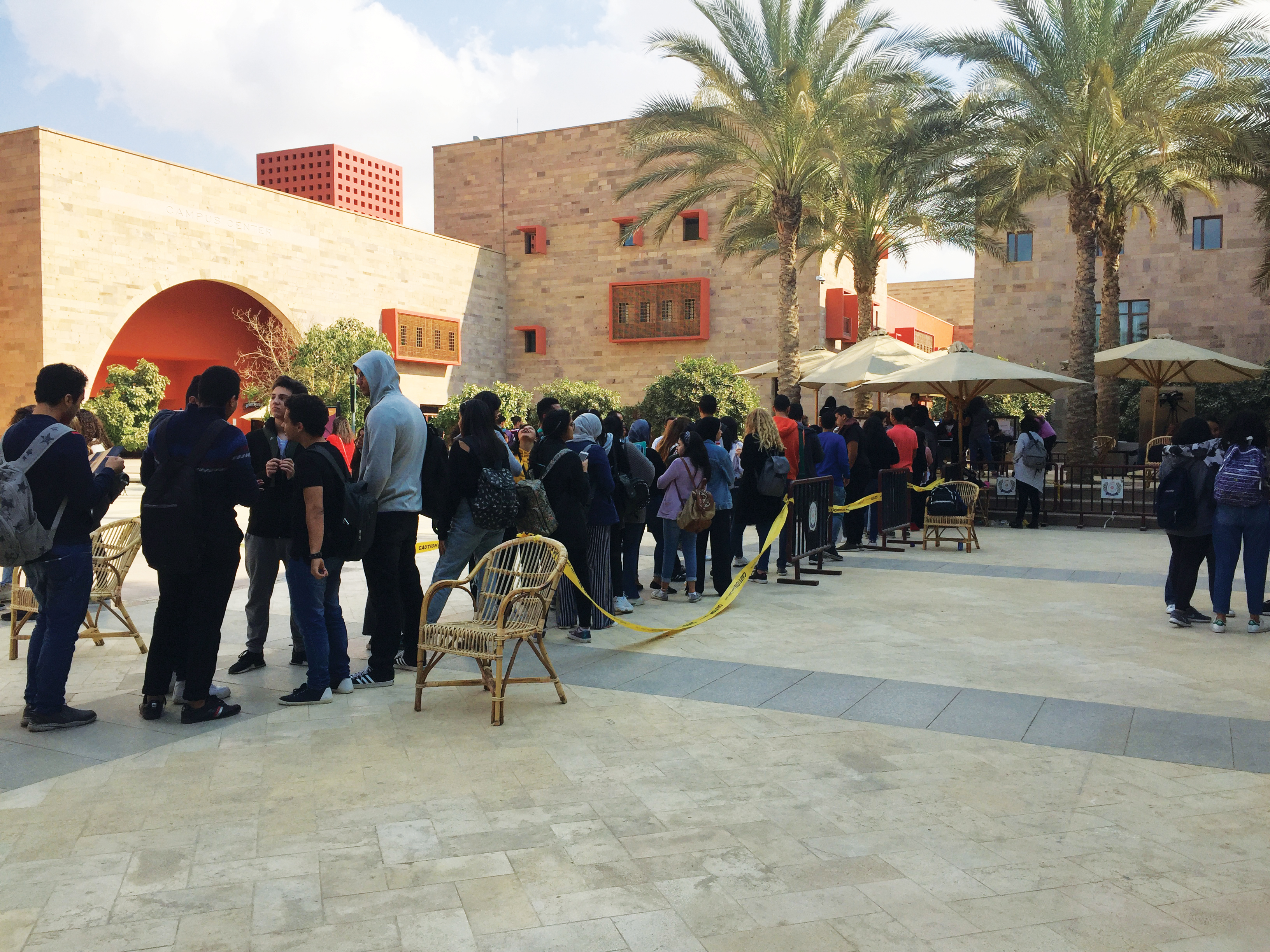Student Senate: For the Students, by the Students?
A Caravan survey gauging engagement during last week’s Student Senate elections has revealed that many students may not be aware of the services the representative body offers.
More than 77 percent of 102 students surveyed said they had never turned to the Student Senate for assistance in academic issues.
Of the 25 students who did turn to their senators for help, 78 percent said the exchange benefited them.
“People are not really aware of what the senate can do for students … Most don’t know anything about its existence,” said former student Senator Omar El Seeny.
“The idea of the senate is beneficial to the student body, but its application is the problem,” he added.
The Senate is the representative council of the university faculty, and includes students, staff and administration. Student senators form part of the student government’s legislative branch.
The Senate, as a whole, discusses and debates issues of concern to the community. Student Senators join faculty and other Senate members to vote on resolutions which are then passed on to the president and university administration for consideration and possible implementation.
In addition to handling academic issues within departments and campus governance, part of the Senate’s job is also to oversee the Student Union’s budget.
But budgetary issues have proven to be contentious between some student senators because of the influence of rival quasi-political “camps” which attempt to exert control of SU governance.
“I thought the Student Senate was really going to be effective and represent the students, but the fact is that the camps are really in control of the whole thing. It’s all about who has more seats in the Senate so they can control the SU’s budget,” said Integrated Marketing and Communications senior Mohamed Ashraf.
Ahmed Salama, a member of the red camp, agrees that the Student Senate’s main role is to watch over the millions being spent yearly by SU.
“The problem is usually political and it happens when camps clash,” Salama told The Caravan.
“This causes conflict between the SU and the Senate which affect the students in the end. Sometimes, it gets personal and things come to halt, such as the SU’s budget in some events,” said Salama.
These divisive issues have hurt campus perception of the Student Senate’s functionality.
“The senate keeps saying they’ll make changes, but they never do. They never follow through with their promises, these are just inside deals, and the camps are really in control of everything,” said Construction Engineering junior Omar el Tohamy.
Nada Walaa, one of the candidates running for the Business Administration Student Senate seat, says she had observed from previous elections that many student senators were unknown by their constituents and “would only appear in times of elections”.
“So, I decided to do something about it because I realized how important their role was and how it should be served properly,” she said.
Nevertheless, those who serve in the Student Senate or become campus representatives say there is much the senators can do, particularly in helping students overcome the challenges in advising and registration.
“People don’t understand the reason behind the different entities in the university, like the Senate. The senators can help the students in most aspects. If people were more aware, that would make an impact,” said former Business Administration Senator, Seif El Ramly.
“Sometimes, there is ineffectiveness when the senators are new at the beginning of the semester, until they understand their duties,” he said.
“It takes time for them to get a hand on things. But when they do, they can make a lot of things easier for students.”
Working with students was the inspiration which drove newly elected Business Senator Youssef Ayman to run this semester.
“I joined the senate because I wanted to work on my representative skills, how to help people with their conflicts in my department. I hope I can really help students with problems I’ve already been through,” he said.




